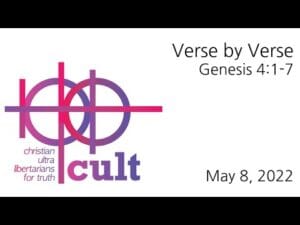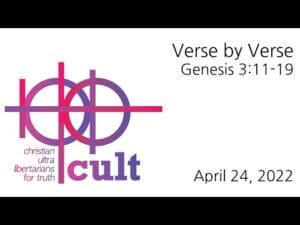
Genesis Flood Summary Bible Teaching
Shawn critiques literalism in Genesis 6–8, suggesting a local Mesopotamian flood, not global. He challenges traditional views like the canopy theory, citing geological evidence.

Shawn critiques literalism in Genesis 6–8, suggesting a local Mesopotamian flood, not global. He challenges traditional views like the canopy theory, citing geological evidence.

Noah's Ark: Clean/unclean animals, 40 days rain, Pangea shift, divine protection, floodwaters recede, dove's peace symbol, sacrifice, localized flood, future fire judgment.

Shawn distinguishes "erets" and "tebel" (Hebrew) and "ghay" and "kosmos" (Greek) to suggest a localized flood. He discusses Noah's Ark, covenants, and faith's role in salvation.

Genesis 6 details human corruption leading to God's decision to flood the Earth, sparing only Noah. It discusses human free will, divine emotions, and the Nephilim.

Script currently unavailable.

Shawn's teaching focuses on genealogies tracing the Messiah's lineage, the division of "sons of God" and "sons of men," honoring God's exalted, avoiding idolatry, and the spiritual journey of figures like Enoch and Noah. It emphasizes faith, righteousness, and prophetic wisdom, highlighting the Messiah's lineage through Shem and King David.

The teaching contrasts Cain's sinful actions with Abel's righteousness, emphasizing love and unity among believers. It discusses Cain's punishment, God's mercy, and early biblical genealogy, highlighting human advancements and divine interactions.

Shawn's teaching on Genesis 4:1-15 examines Cain and Abel's story, focusing on offerings, consequences of Cain's actions, themes of divine justice, grace, and the importance of faith.

Shawn stresses sound exegesis, noting not all scripture is universally applicable. Adam's naming of Eve shows human wisdom. God's mercy foreshadows Christ's redemption.

The teaching summary highlights themes of accountability, self-reflection, and consequences of choices from the Genesis narrative. It emphasizes personal responsibility, God's fairness, and the distinct consequences for Adam, Eve, and the serpent. It also discusses the dynamics of male-female relationships post-Fall and the importance of faith in Christ for restoration. The narrative underscores toil as a reminder of human limitations and reliance on God.